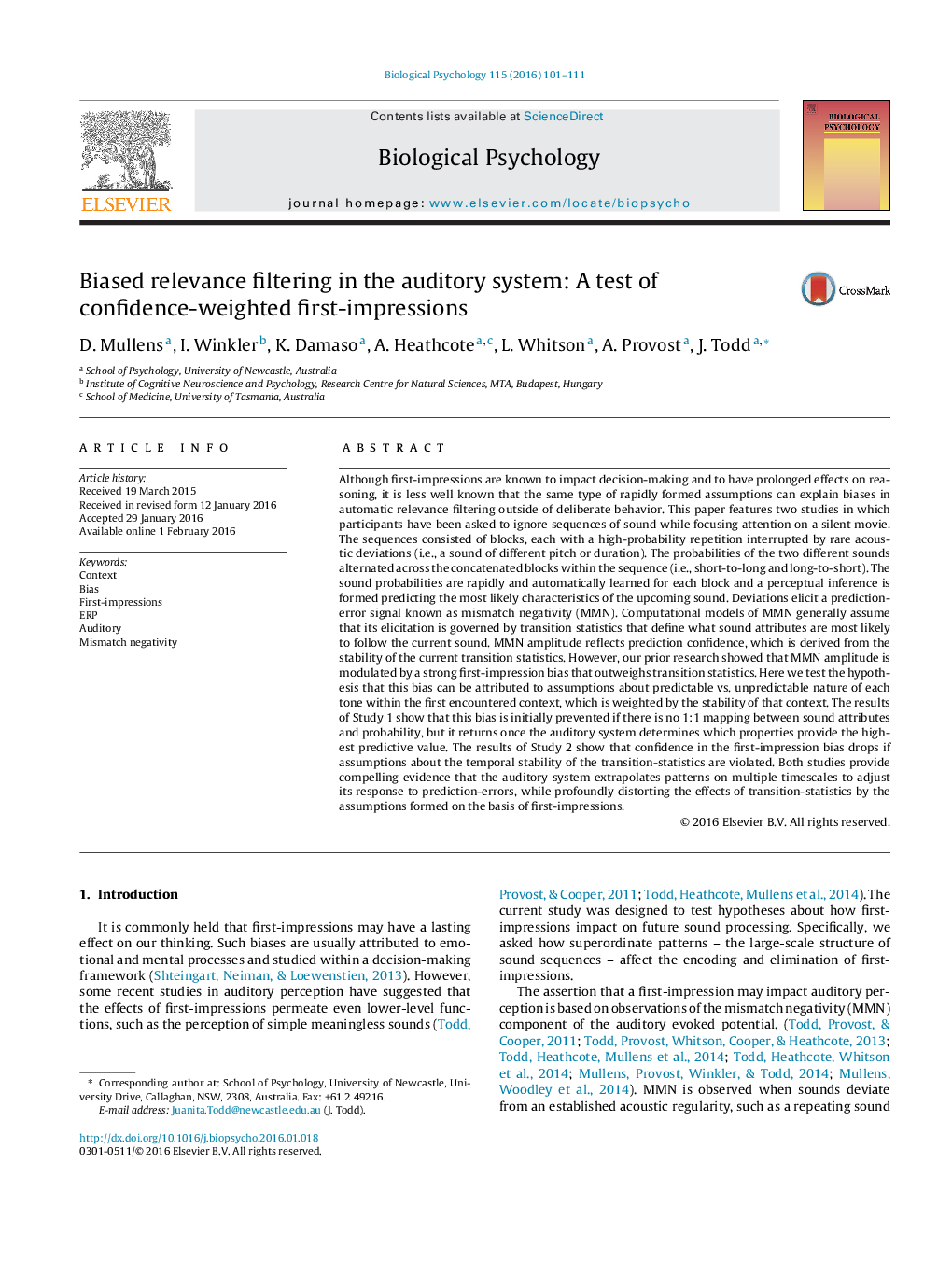| کد مقاله | کد نشریه | سال انتشار | مقاله انگلیسی | نسخه تمام متن |
|---|---|---|---|---|
| 920732 | 1473858 | 2016 | 11 صفحه PDF | دانلود رایگان |
• First-impressions have a lasting impact on auditory relevance filtering.
• First-impressions bias modulation of auditory mismatch negativity (MMN) amplitude.
• The auditory system forms a hierarchy of prediction models over multiple timescales.
• The auditory system modifies confidence in first-impressions but does not drop them.
Although first-impressions are known to impact decision-making and to have prolonged effects on reasoning, it is less well known that the same type of rapidly formed assumptions can explain biases in automatic relevance filtering outside of deliberate behavior. This paper features two studies in which participants have been asked to ignore sequences of sound while focusing attention on a silent movie. The sequences consisted of blocks, each with a high-probability repetition interrupted by rare acoustic deviations (i.e., a sound of different pitch or duration). The probabilities of the two different sounds alternated across the concatenated blocks within the sequence (i.e., short-to-long and long-to-short). The sound probabilities are rapidly and automatically learned for each block and a perceptual inference is formed predicting the most likely characteristics of the upcoming sound. Deviations elicit a prediction-error signal known as mismatch negativity (MMN). Computational models of MMN generally assume that its elicitation is governed by transition statistics that define what sound attributes are most likely to follow the current sound. MMN amplitude reflects prediction confidence, which is derived from the stability of the current transition statistics. However, our prior research showed that MMN amplitude is modulated by a strong first-impression bias that outweighs transition statistics. Here we test the hypothesis that this bias can be attributed to assumptions about predictable vs. unpredictable nature of each tone within the first encountered context, which is weighted by the stability of that context. The results of Study 1 show that this bias is initially prevented if there is no 1:1 mapping between sound attributes and probability, but it returns once the auditory system determines which properties provide the highest predictive value. The results of Study 2 show that confidence in the first-impression bias drops if assumptions about the temporal stability of the transition-statistics are violated. Both studies provide compelling evidence that the auditory system extrapolates patterns on multiple timescales to adjust its response to prediction-errors, while profoundly distorting the effects of transition-statistics by the assumptions formed on the basis of first-impressions.
Journal: Biological Psychology - Volume 115, March 2016, Pages 101–111
